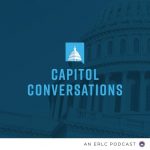The Home as an Extension of the Heart: A Transitional Foster Mother’s Story
May 4, 2021
Interview by: Grace Richardson and Victoria MacDonald
There are many children today who arrive to the United States without a guardian or, for a number of reasons, are left without a guardian during the immigration process. When children arrive at the U.S. border without any parent or guardian, they are detained for a period of time by U.S. Border Patrol while they are processed by the Department of Homeland Security. Unaccompanied minors are then referred to the Office of Refugee Resettlement. From there, the ORR works to find a place for each child while they wait to be reunited with their sponsor in the US. One way for these children to find a temporary home during this time is through transitional foster care. Bethany Christian Services is one organization who helps place unaccompanied migrant children in temporary foster homes until they can be reunited with their families or sponsors in the United States.
Our interview today is with a current foster mom who is certified to care for unaccompanied minors. While originally from Honduras, she currently resides in Michigan where she partners with Bethany Christian Services. This is a small portion of her story on how her heart for immigration and children have led her to a place of fostering and welcoming children into both her home and her heart.
For another look at transitional foster care, this interview provides a powerful perspective on the place of hospitality in the context of fostering unaccompanied children.
Why did you feel compelled to start fostering kids and, in particular, unaccompanied children?
I am originally from Honduras, and in my younger years I moved to the States to begin studying English to earn a scholarship. I ended up going to an international English center where I found myself in this beautiful international English program with people from 23 different countries and maybe 30 different languages. I became so passionate about language, and I started working with migrants. Then, in 1998, when a lot of people came from Honduras to America because of hurricane Mitch, I started getting more involved.
I got connected with Bethany Christian Services through someone from my church who worked there. They asked me if I could go talk to kids in their programs as a sort of motivational speaker. I have six children and they were much younger then, so I just decided to volunteer and talk to the teenagers telling them, “hey, if I did this, you can do it too.”
As I just started talking to these children, I thought, “Oh, they really need somebody, they need people to listen to them.” And I don’t know, I just became more and more involved. At the time I couldn’t become a foster parent, because I had a lot of kids, and I always ended up with kids of my neighbors who were children of immigrants who were deported. Knowing and caring for so many kids who were born here but whose parents were deported made the topic of immigration and unaccompanied children hit very close to home. I ended up caring for a lot of kids throughout the years.
My husband and I finally decided to become licensed, after my oldest daughter moved out and we had an extra room downstairs. We thought “maybe we can help somebody.” We ended up having a young boy as our first child, and we loved him. He was part of our family. And now, we are looking after a fifteen year old who has a four month old baby.
How many children have you fostered overall?
Well, actually only the two with us right now and the previous one – so three in total. Our previous boy was with me for a year before he passed away. After he died I refused to foster another kid. I thought “I’m not going to have another one because I’m healing.” But, when they told me about this young lady who I have now, I couldn’t say no. And I’m glad I didn’t. Because I know she needs somebody, she needs family, she needs a mother. She is only a kid but she is also a mother herself. We have been caring for her since the baby was born.
How has your faith played a role in you walking through the season and deciding to foster?
My faith is essential. I always believe that God leads you places for a reason. And I don’t question, I just go with the flow. I had no idea that I was going to come and live in the United States, but God has led me back and forth between the US and Honduras many times. God has opened doors in many different ways for me with immigration issues.
I have come to understand immigration issues from relationships I have had with my foster children. I have seen the struggles they go through, and now I try to pass on understanding to those I teach in my classes as a professor. Faith has opened a lot of doors for me. I have seen the power of a loving home and have also witnessed the faith of the children who have become like my own. My current foster daughter has such faith. At the beginning of when she was living with us, I noticed that she would go downstairs every day and just talk to herself. Spanish is her second language, so I couldn’t understand what she was saying, until I heard her saying the words “Jesu Christo.” Then I knew she was praying. She prays for an hour every single day. She is an example of faith to me.
What is one thing you would want people to know about the process of migrant children coming to the United States?
I get upset when people have mixed feelings about the mothers of these children who arrive unaccompanied. People say “I don’t know if I could send my kid out there and put them into danger.” But these kids don’t come from the middle class, they come from the poorest areas of the countries, and they go through so much danger. It is a hard choice, but you have to think of the position the mother is coming from. Either they think that their child is going to be killed if they stay or that they will have a chance to live if they go. That’s an impossible choice, but it’s one these mothers have to make. With that in mind, I think it is so hard to understand what these kids go through to get here. I’m just so thankful for the fact that Bethany and other organizations take them in and assume a lot of responsibilities because it is emotionally and physically difficult for these kids.
What is a time when you knew one of the kids felt welcome in your home?
The first thing that comes to mind is when my foster children have called me Mama. Often when children have come into my home they have a hard time adapting to different changes, but when they feel safe and comfortable enough to call me mom, it is just the best feeling. You know they feel safe enough with you and welcomed.
What has been a challenge that you have experienced when welcoming kids into your home?
The judgement from some people, even in my own family, can be very difficult. I have a sister who always asks “Why?” Many people think that you do this stuff for money, but that is far from the truth. I don’t do this for money. I do it because I love to help people. They don’t understand why I take on these responsibilities, so that’s a challenge. Even in my work, my colleagues say, “I don’t get it. You have always had so many kids and you still get more kids and more responsibilities.” But the truth is that I take on these responsibilities because I love these children. So the challenge is that I think people judge you for what you do. Not seeing that you do it to help others.
One last question. What would you want to tell a family or an individual who’s considering fostering in general and specifically fostering unaccompanied children like you do?
I would say pray a lot. You have to be strong, emotionally ready, and prepared. Read. Don’t just go by what people say. But read… read the newspapers of the countries the kids are coming from, learn more about why they are coming so you are not judging why parents made that decision. Talk to people from those countries, if possible. If you don’t do your homework, then you don’t know what they are going through to get here. These kids are running away from danger. So listen and open up your heart.
I also just want to encourage people because I know foster parenting can be a challenge, but it gives you an incredible opportunity to get to know other kids and make an impact. I personally wouldn’t be here if I didn’t have a family care for me when I came to the United States. Even though it was a different situation, I wouldn’t be in the position that I am as a professor, a mother of my own wonderful children, a foster mother, and a grandmother. If I didn’t have that set of parents who opened their doors to help me learn the language, encouraged me to go to school, and who believed in me, I wouldn’t be here. I’m so thankful for them. With fostering, you have no idea that generations will be impacted by perseverance and choosing to love the children who are brought into your home. It is beautiful.
For ways to get involved please visit: https://bethany.org/help-a-child/foster-care/transitional-foster-care
 Grace, moved from Colorado to San Diego three years ago to attend Point Loma Nazarene University where she will graduate this spring with an International Studies degree. She studied abroad in the Middle East where she had the opportunity to work with refugees, inspiring a career path to pursue immigration policy in America.
Grace, moved from Colorado to San Diego three years ago to attend Point Loma Nazarene University where she will graduate this spring with an International Studies degree. She studied abroad in the Middle East where she had the opportunity to work with refugees, inspiring a career path to pursue immigration policy in America.
 Originally from the Chicago suburbs, Victoria graduated from Taylor University in 2021 with a Global Studies degree. She is passionate about the elevation of the most marginalized through engaging in meaningful dialogue which broadens perspectives and challenges assumptions.
Originally from the Chicago suburbs, Victoria graduated from Taylor University in 2021 with a Global Studies degree. She is passionate about the elevation of the most marginalized through engaging in meaningful dialogue which broadens perspectives and challenges assumptions.






